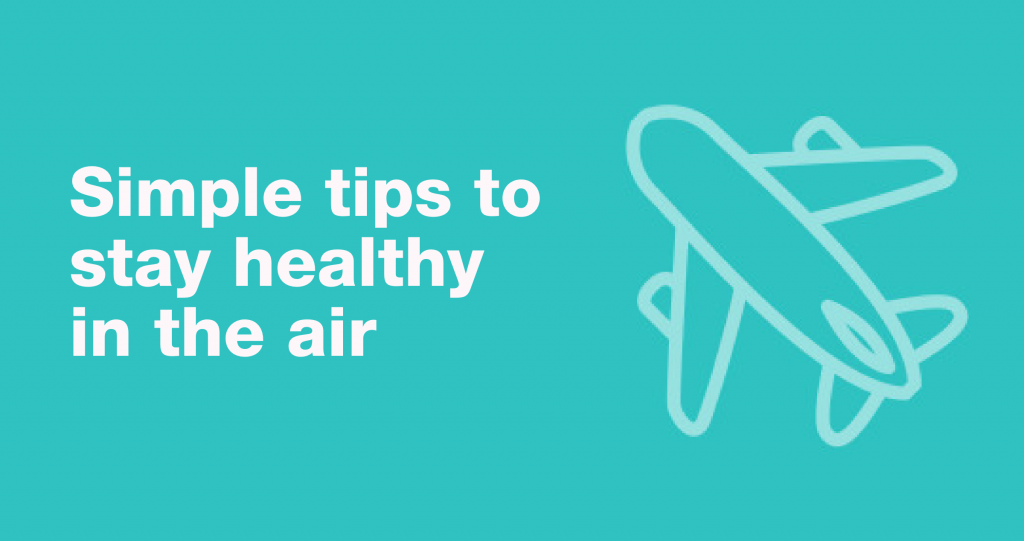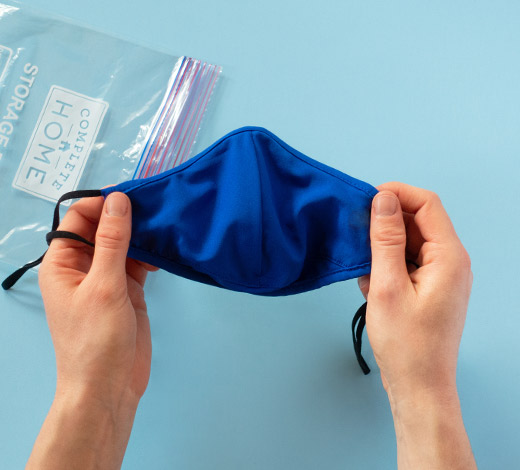
Wash your hands.
Traveling by airplane can up your risk for infections. When people are together in a small space, germs can spread easily if someone has a cold or the flu, for instance. Washing your hands often is one of the best ways to reduce your chance of getting sick. Wash your hands with soap and water after coughing, sneezing and using the bathroom and before eating. Avoid touching your nose, mouth or eyes with your hands. Carry alcohol-based hand sanitizer with you to use when water isn’t available, and consider packing disinfecting wipes to clean surfaces.
Move your legs.
Taking a long-distance flight may increase the risk of blood clots called deep vein thrombosis (DVT). This serious condition happens when blood clots form in the deep veins of the legs because you’re sitting still in a confined space for a long period of time. You are more likely to develop a DVT if you have additional risk factors. These include a family history of blood clots, obesity, pregnancy, cancer, use of estrogen-containing birth control or hormone replacement therapy, as well as recent injury or surgery. To lower your chance of DVT, move your legs around often to improve blood flow. Stow your carry-on luggage in the overhead compartment instead of under the seat in front of you so you have more room to stretch your legs. Don’t sit with your legs crossed, and be mindful to flex your ankles often. Stand up and walk the aisle at least once per hour, if possible. If you have additional risk factors for DVT, talk to your doctor before you fly. You may be prescribed specific treatments.
Stay hydrated.
Drinking enough water on long flights is a must. Flying can be dehydrating due to low humidity levels in the cabin of the aircraft. Dehydration can lower your immune system and worsen the symptoms of jet lag, such as sleepiness, digestive problems, a general “off” feeling and trouble thinking. Drinking one cup of water every 1–2 hours may also help reduce the risk of DVT.
Avoid or limit alcohol.
Alcoholic beverages can be dehydrating. Alcohol also has a negative effect on sleep quality, keeping you from feeling well rested. This can make jet lag feel even worse. Being hungover can also exacerbate symptoms of jet lag. Avoid drinking alcohol or consume it only in moderation before and during your flight.
Get enough sleep.
Not only can sleep deprivation weaken your immune system, but being well rested can help you manage the symptoms of jet lag. Make sure you sleep well in the days leading up to your trip. It’s also a good idea to try to nap on the plane. Even short naps can be helpful in combatting jet lag. Once you arrive at your destination, aim to get as much sleep as you normally do, especially within the first 24 hours.
Staying on top of your health when you fly long distances may help keep you from getting sick. If you have any medical conditions, check in with your doctor before you fly. Health risks associated with lengthy air travel can be minimized if you plan carefully and take some simple precautions before, during and after the flight.
Sources
https://www.cdc.gov/ncbddd/dvt/travel.html
https://wwwnc.cdc.gov/travel/page/infectious-diseases
https://familydoctor.org/air-travel-health-tips/
https://www.health.harvard.edu/staying-healthy/air-travel-health-tips
https://wwwnc.cdc.gov/travel/yellowbook/2018/conveyance-transportation-issues/air-travel
https://www.cdc.gov/features/long-distance-travel/index.html


